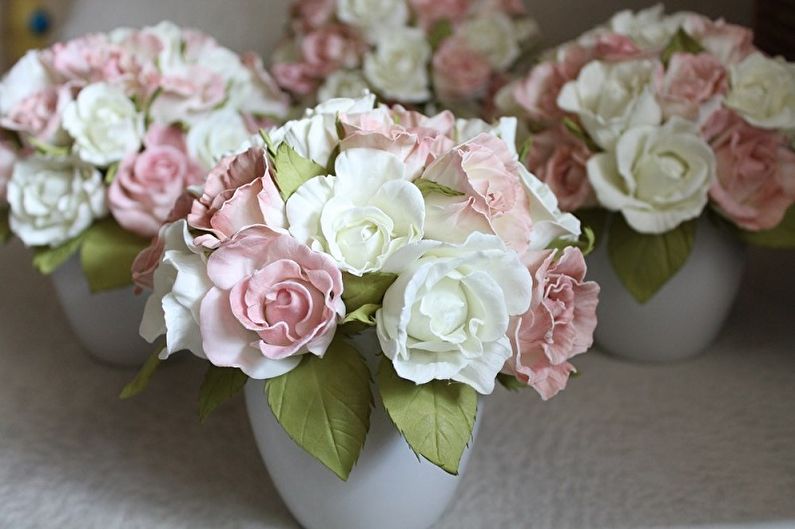
Making beautiful roses from foamiran is a great way to create a unique accessory for your wardrobe or an exquisite bouquet that will take a prominent place in your interior. Due to the unique properties of the material, these products can last a long time, maintaining their original beauty. In this article, we will discuss the characteristics of foamiran and ways to craft lovely roses from it.
Foamiran: Features and Types
The beautiful name “foamiran” refers to pliable suede, also known as revelur. The material is highly elastic. When heated, it can take various shapes depending on how you bend or twist it. Qualities such as softness, resilience to storage conditions, ease of processing, and a vibrant color palette make it a favorable choice for crafting artificial flowers.
There are several types of foamiran – Iranian (the oldest type), Turkish, Chinese, Korean, and a newer kind, European. For home crafting, the two main types used are Iranian revelur and Chinese. The former has a pleasant, slightly velvety surface with a rich palette of about 30 soft pastel shades. A drawback of this material is its lower elasticity – it stretches less and retains its new shape less effectively.
Chinese foamiran offers 24 colors, each vibrant and intense. A popular subtype is the marshmallow Chinese revelur, which has an incredibly soft surface. At high temperatures, it becomes as stretchy as chewing gum.
You can purchase any type of material in rolls or sheets of varying thickness, size, and color. It’s worth noting that the fabric thickness can range from half an inch (about 1.27 cm) to several inches (1 inch = 2.54 cm). When shopping, it’s essential to pay attention to this – for delicate, tiny flowers, it’s better to choose a thinner fabric.
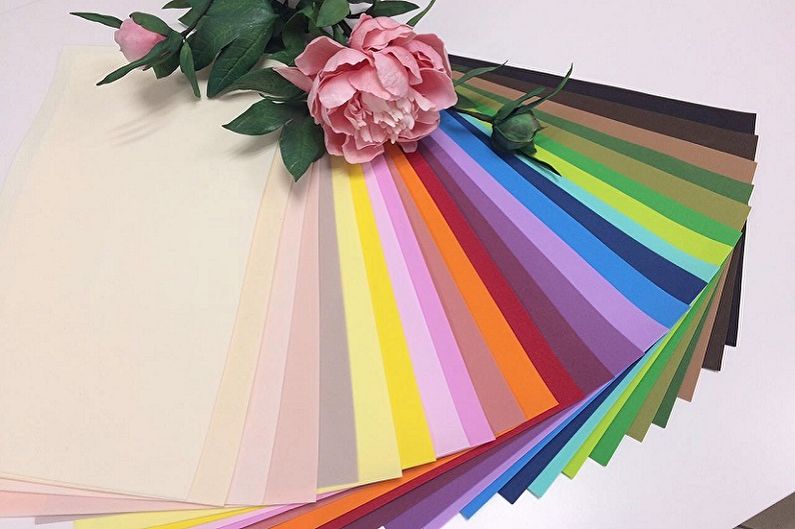
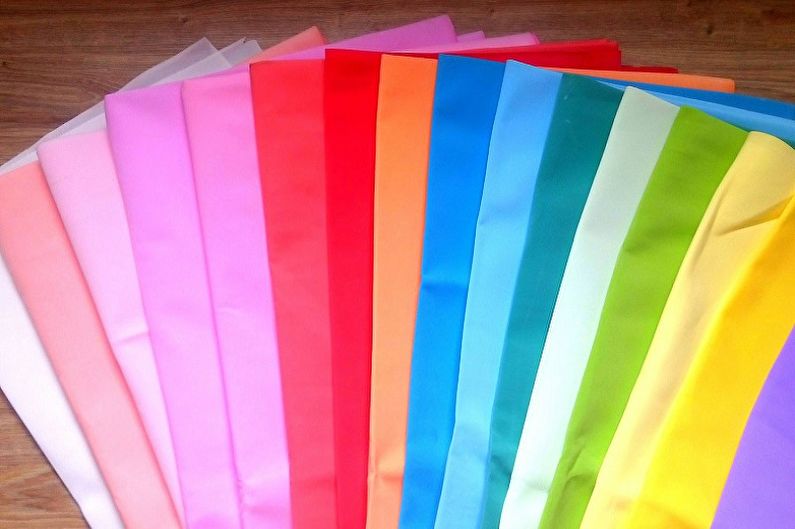
Materials and Tools for Crafting
Before diving into this fascinating hobby, you need to gather the materials to make the rose and the appropriate tools. You can choose the type of foamiran at your discretion. However, marshmallow foamiran of any color palette is often used for crafting buds, while green Iranian foamiran is preferred for petals.
Besides the main component, which is the material of two colors, you’ll need the following: paper or cardboard for initial template creation; a pencil, compass, and ruler; oil pastels of various shades and a special sponge for shading; a glue gun; toothpicks; wire for the stem; aluminum foil for shaping the flower’s center; scissors; an iron; floral tape; and hairpins, bands, headbands – basically anything you plan to attach the finished flower to.
This list contains the essential tools for the job. The list might vary depending on how and why a particular rose is crafted. Sometimes, instant glue can replace a glue gun, the heating properties of an iron can be substituted with a lighter, and instead of foil for the center, pieces of the same foamiran or purchased ready-made stamens can be used.
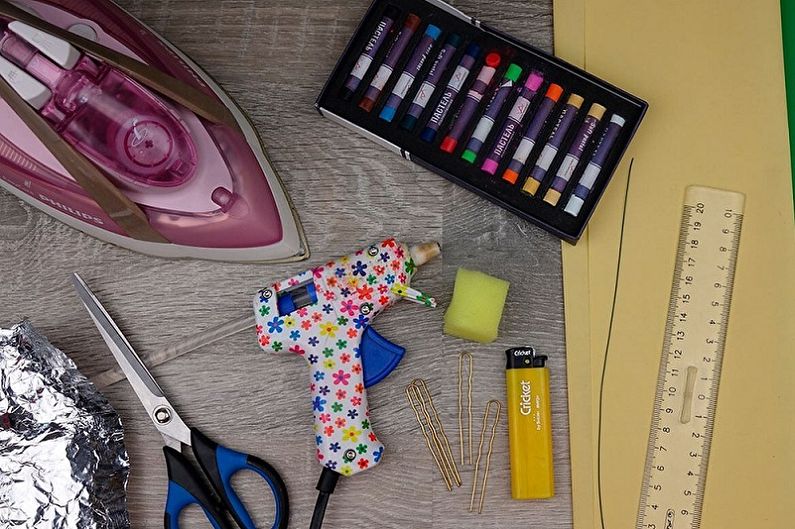
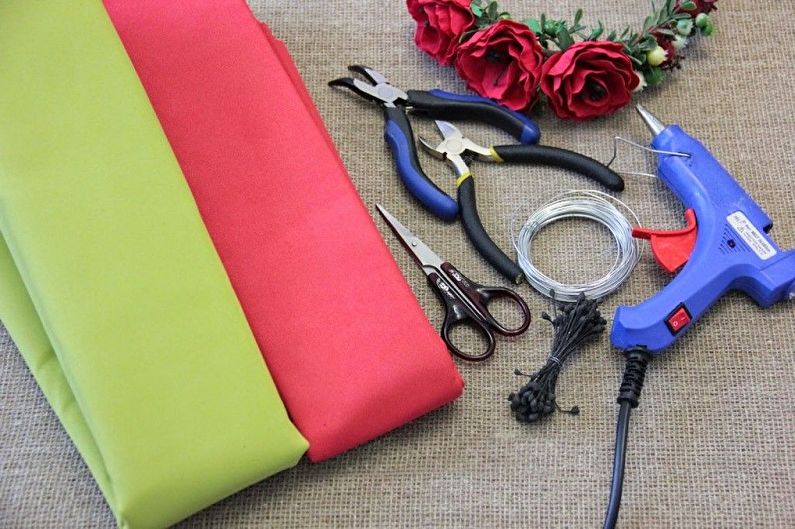
Making a Foamiran Rose by Hand
There are countless varieties of roses worldwide: Japanese, English, Chinese, those resembling peonies, geraniums, or the delicate buds of eustomas. Accordingly, the techniques for crafting artificial roses from foamiran will differ. We’ll look at how a beginner can learn to assemble a beautiful rose and a step-by-step process for crafting a more intricate rose from individual petals.
Simple Method for Crafting a Bud Rose
The easiest way is to make a delicate bud rose from pre-shaped materials without cutting individual petals. Using this method, you can craft bud roses and compose a beautiful bouquet from them. So, let’s explore the step-by-step process in detail, especially since this example is aimed at beginners:
1. First, draw and cut out three circles of different sizes on cardboard, which will form the templates for the petals. The largest diameter is 3.54 inches (9 cm), the medium is up to 3.15 inches (8 cm), and the smallest is about 2.56 inches (6.5 cm). Draw petals on each circle without reaching the center, and cut them out.
2. Transfer the templates to the material and cut out one piece of each size (a toothpick is handy for this). You can prepare several pieces at once to craft an entire bouquet.
3. To make the rose look appealing and realistic, give it lifelike shades using pastel and sponge. Apply the pigment by lightly touching the petals with a dabbing motion. It’s advisable to color the tips darker than the central part. After coloring one side, let the template dry a bit before coloring the other side.
4. Next, you’ll shape the petals using an iron. Heat up the iron and then apply it to each petal’s surface individually. After heating, gently stretch each part and use your fingers to give it a curved shape, twisting the sides as you go.
5. When the main shapes for the bud are ready, start assembling the flower. To make the center, use foil, twisting it into a cone, and insert a stick or wire for the stem inside.
6. Now, attach the petals to the prepared “skeleton.” To make the rose look fuller, you can add a couple of extra petals that will cover the center. Attach the petals to the foil one by one, ensuring the foil is hidden well.
7. Take the prepared shapes and, starting with the smallest one, slide them onto the stick and glue them to the base, one petal at a time.
8. The next step is to shape the backing – you’ll need to cut it from craft foam, blend it with shading pastels (for realism, it’s best to use green and yellowish hues), and then make small cuts along the edges.
9. Heat the backing and use a toothpick to create natural vein patterns on its surface.
10. In the final step, glue the backing to the bottom of the flower and wrap it with tape.
In this guide, we discussed a simple example of making a flower from three petal templates. Depending on your preferences, you can adjust the number and sizes of the templates. For instance, to make a fuller rose, use one small template and two larger ones.
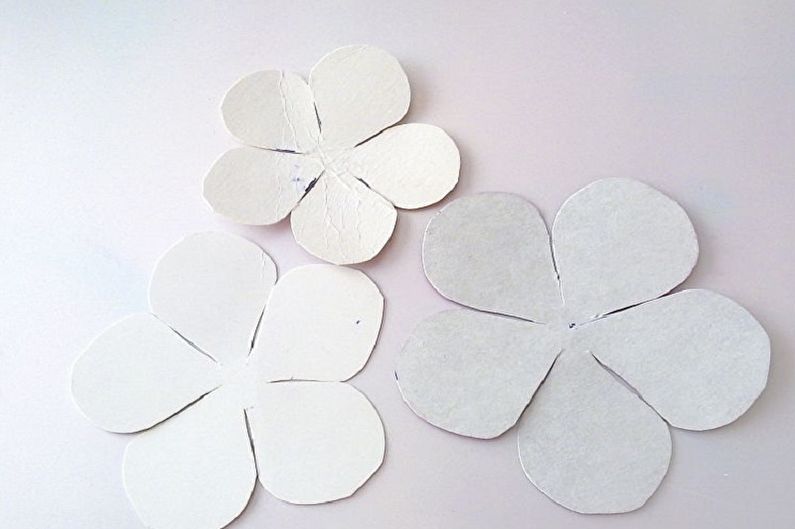
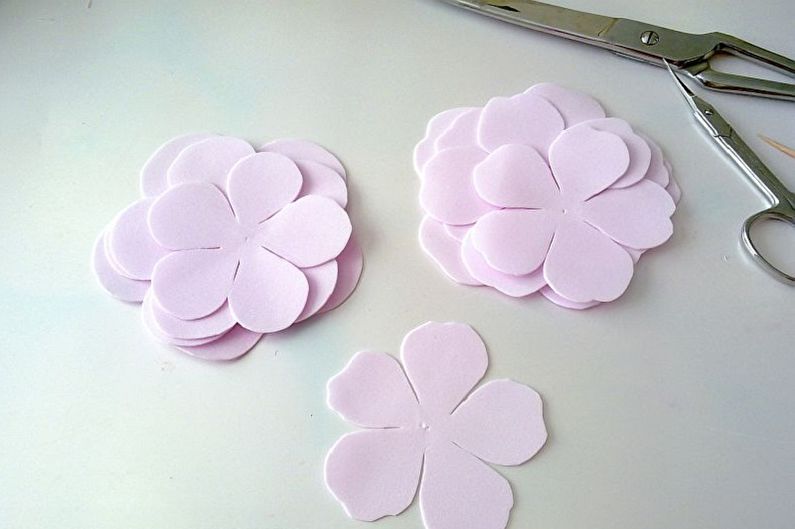
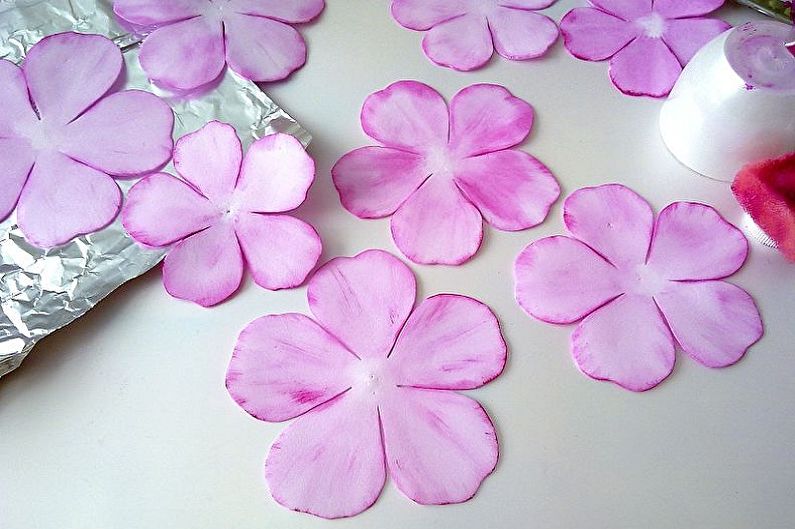
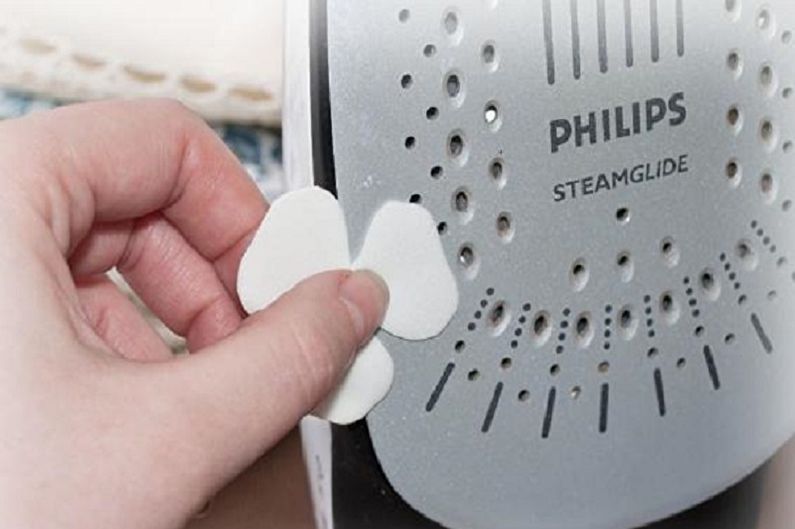
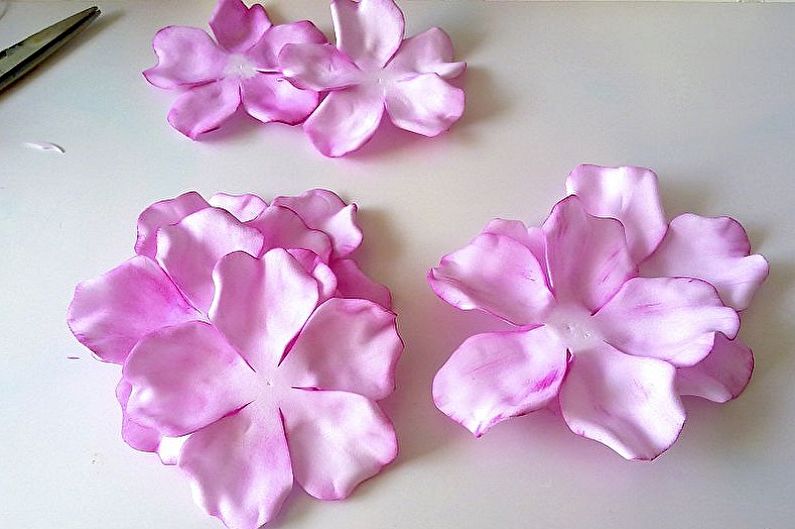
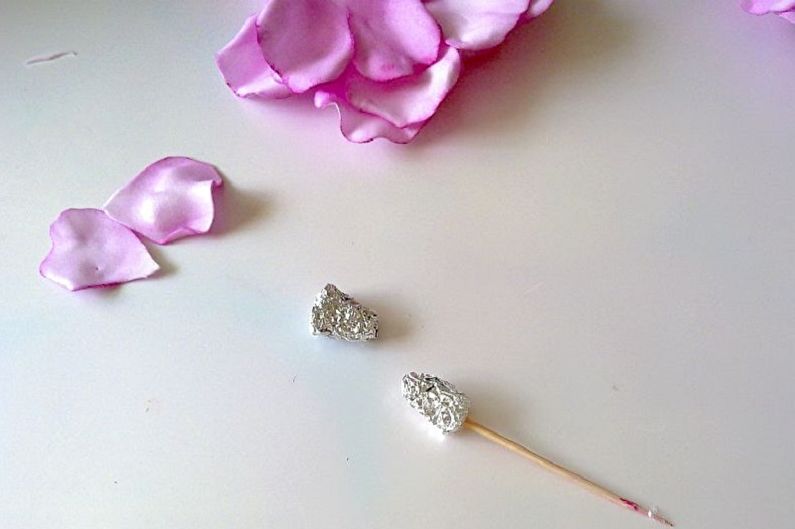
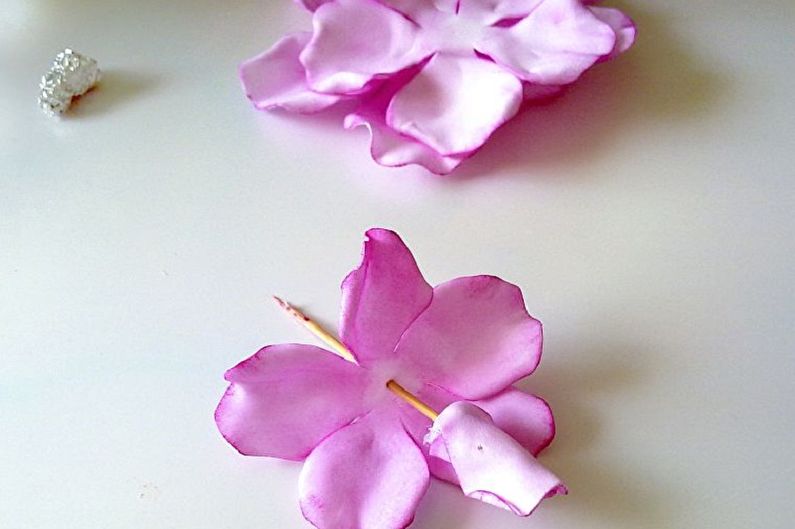
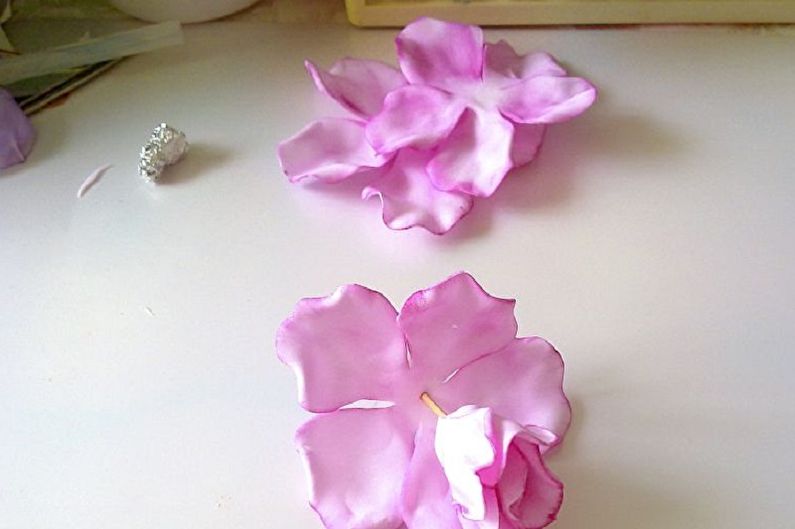
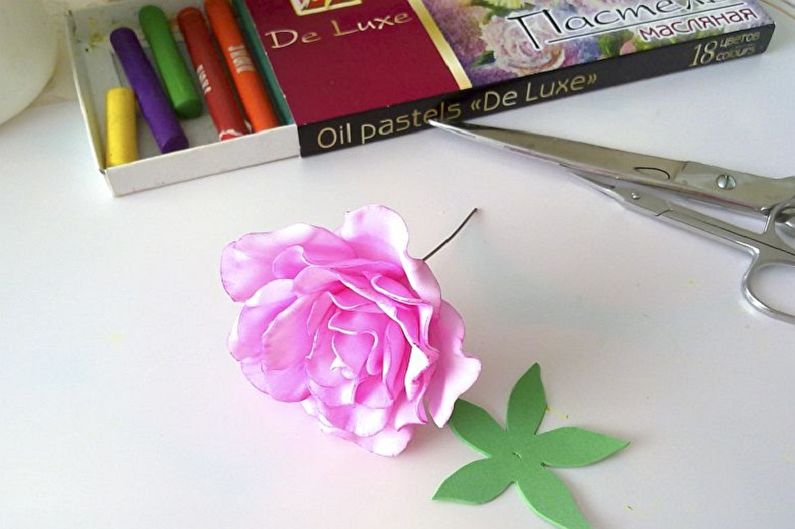
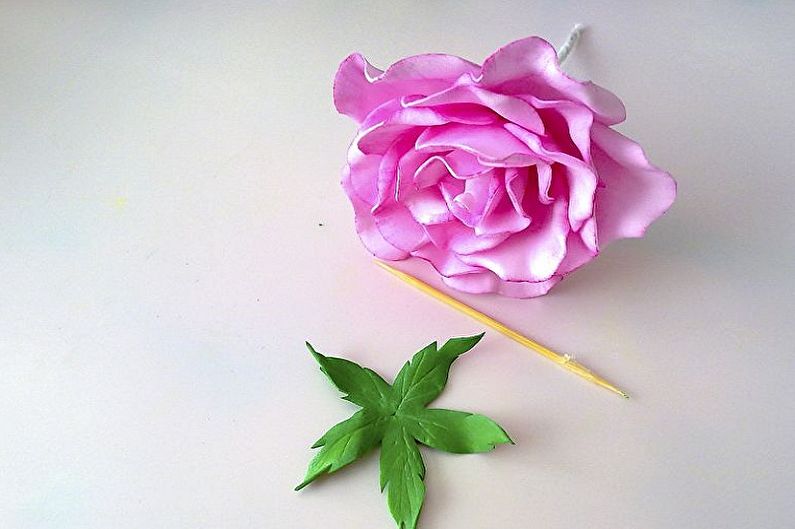
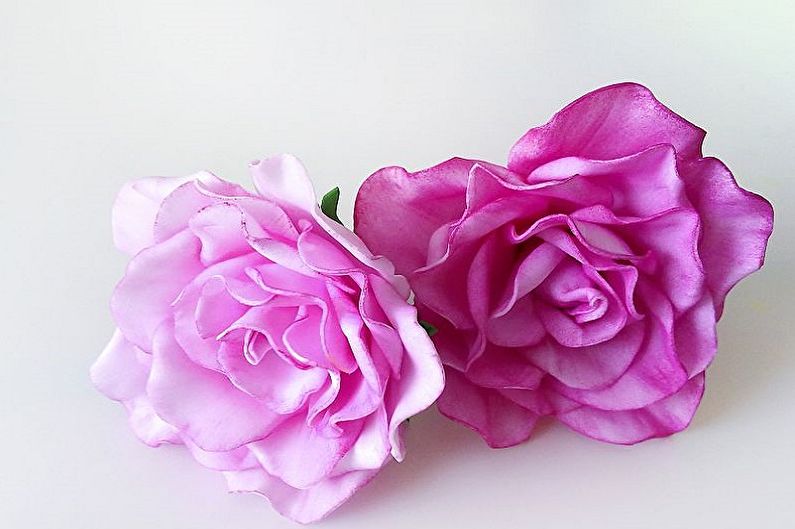
Roses from Individual Petals
In this case, you need to cut out five large teardrop-shaped petals and five smaller ones from foamiran of any desired color. There are no strict guidelines – you can decide the size depending on how big you’d like the bud to be. Experienced crafters, to save time with each petal, simply fold the foamiran sheet multiple times, draw the petal shape on it, and then cut it out. Once the templates are ready, you can proceed with the following steps:
1. Heat the iron and sequentially apply each petal to its surface, stretch it, and fold the edges to achieve a natural wavy look.
2. Next, just as in the previous method, roll up the foil to design the center, inserting a wire inside, then wrap the base with a small petal to form a cone.
3. Alternately glue all the small petals and then the larger ones.
4. Once the bud is assembled, cut leaves from green suede, treat them with an iron, twist them, and glue them to the base of the rose.
What comes next is up to your imagination: the wire can be wrapped with tape, you can “attach” additional branches adorned with leaves and tiny buds. When crafting a rose this way, don’t worry if the cut petals don’t have a perfect size or shape, as nothing in nature is flawless.
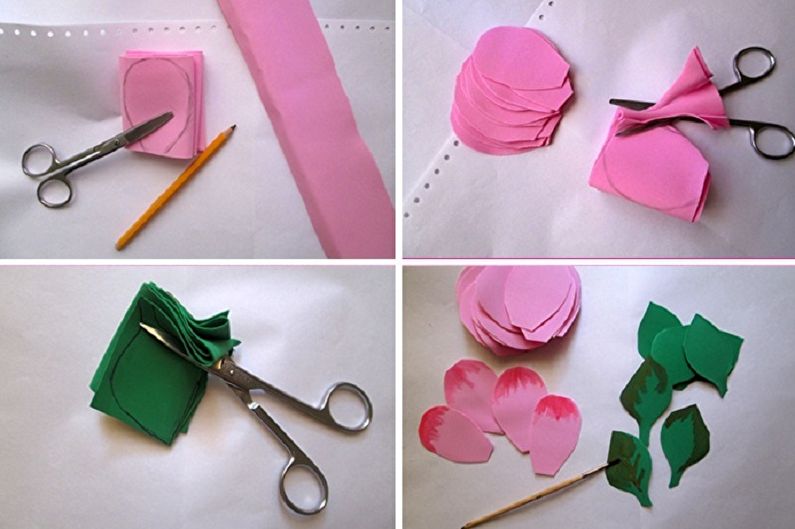
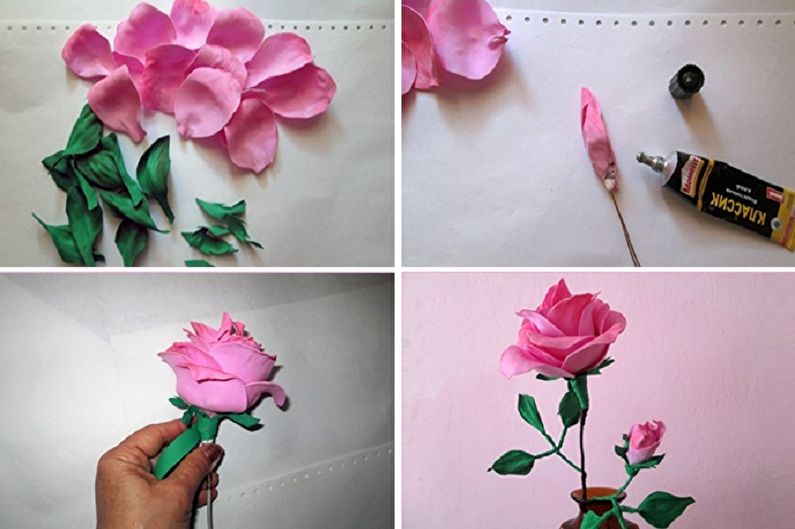
Application of Foamiran Roses
Beautiful foamiran flowers can transform any interior. Skilled crafters can create a true masterpiece that, at first glance, is indistinguishable from a live flower. Delicate roses made from pliable suede are used to adorn hairpins, brooches, wreaths, and regular hairbands.
Such creations have a significant place in wedding floristry – they can be part of the bride’s bouquet or an arch for the newlyweds. They are also used to enhance lavish festive tables and wedding processions.
By learning to craft roses from foamiran, you can prepare the most delicate and original gift for a loved one. You can even find a cute bear made from hundreds of small flowers for sale; however, one made by hand will bring much more joy both to the recipient and the creator.
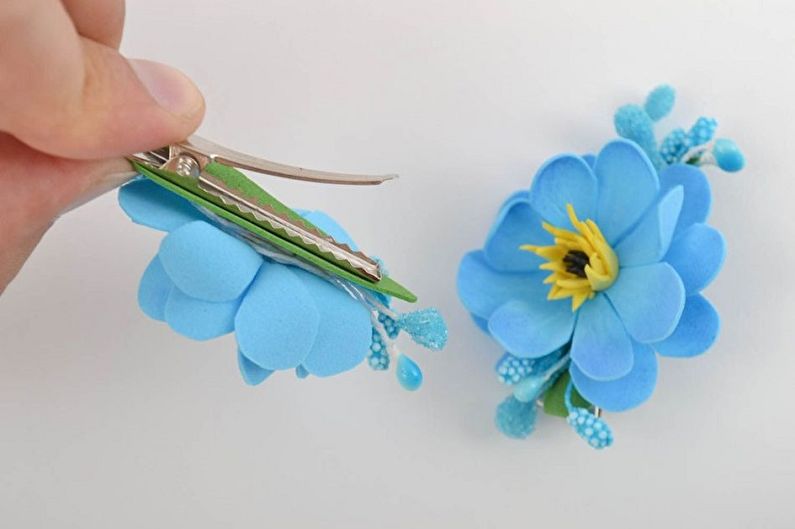
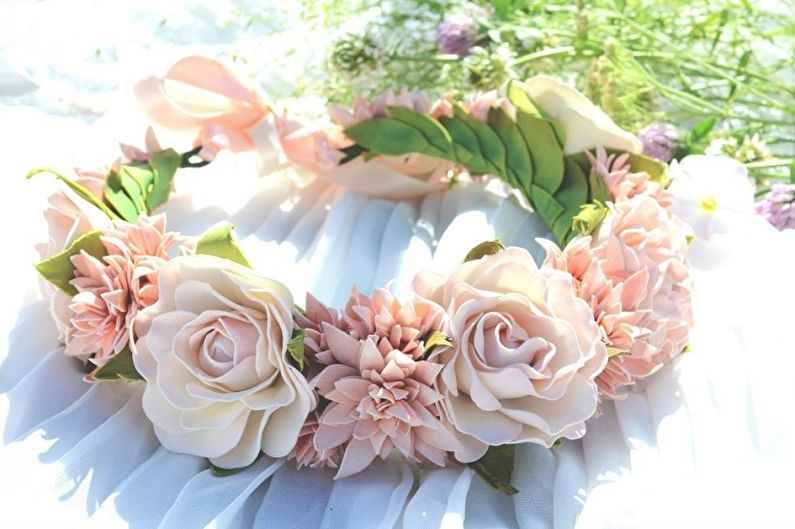
Foamiran Roses – Photo Ideas
Making foamiran roses by hand is a wonderful way to introduce beauty and elegance to even the most mundane setting. Graceful bouquets can embellish any celebratory event, including such joyous occasions as weddings. To get a closer look at how splendid foamiran roses appear, we invite you to our photo gallery. Here, we’ve curated a selection of high-quality images showcasing successful creations. Enjoy your viewing!
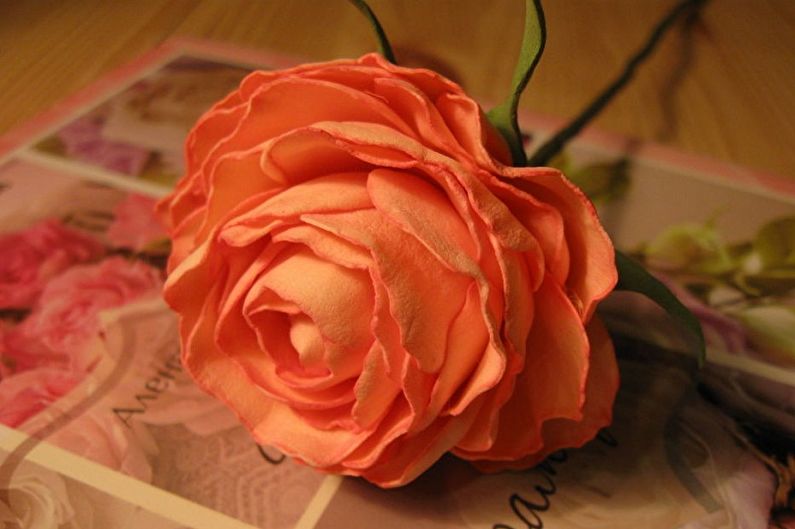
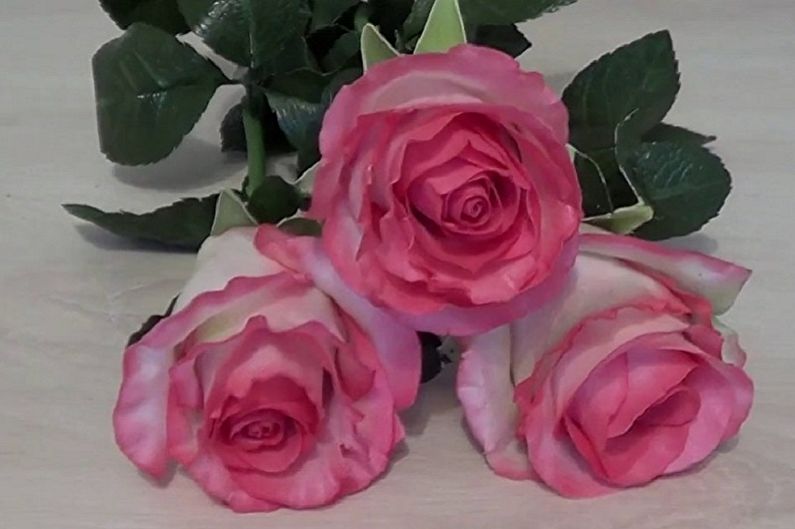
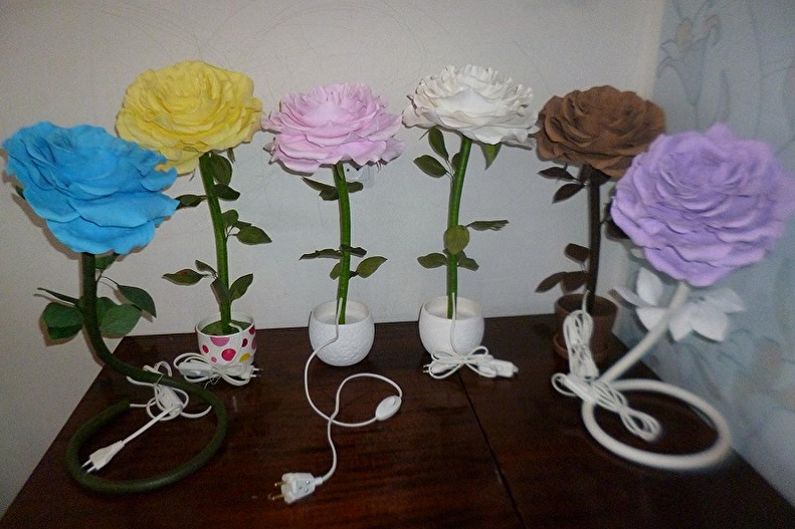
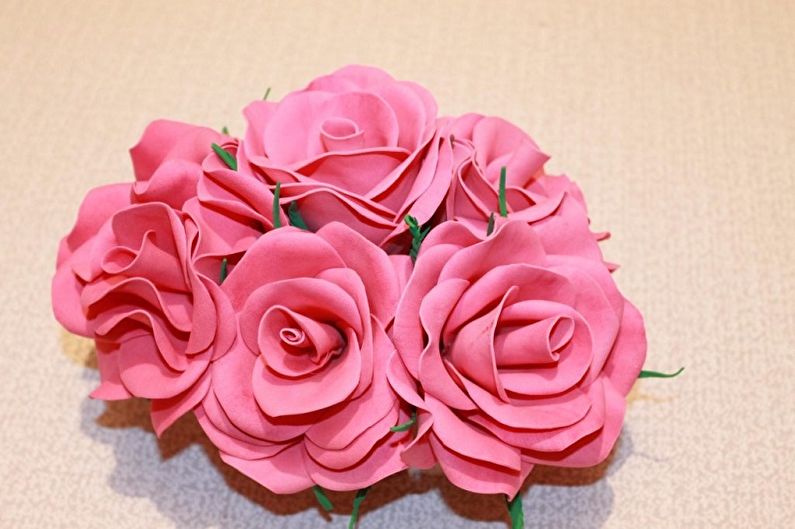
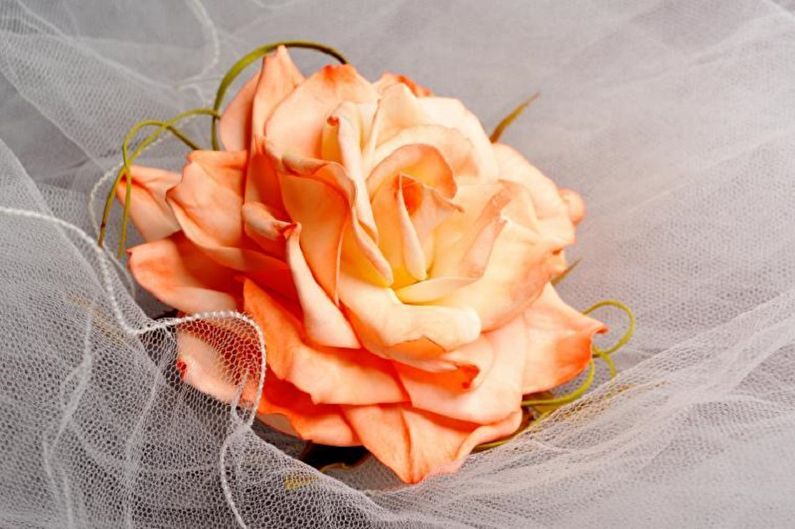
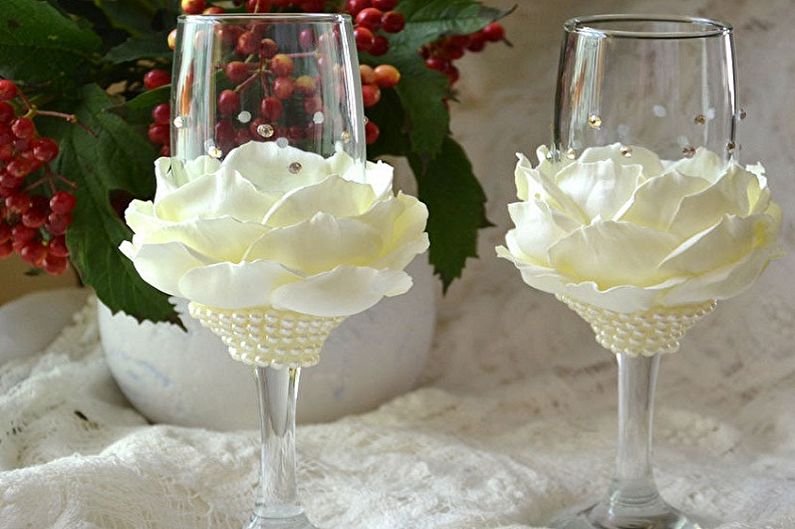
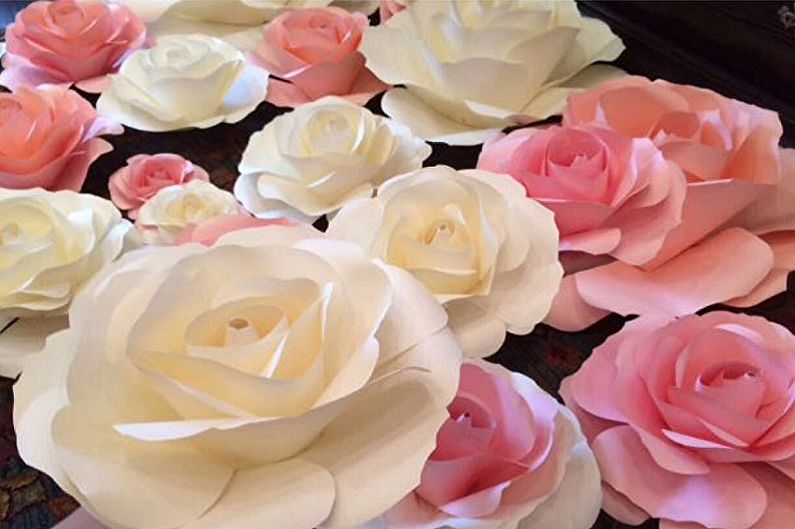
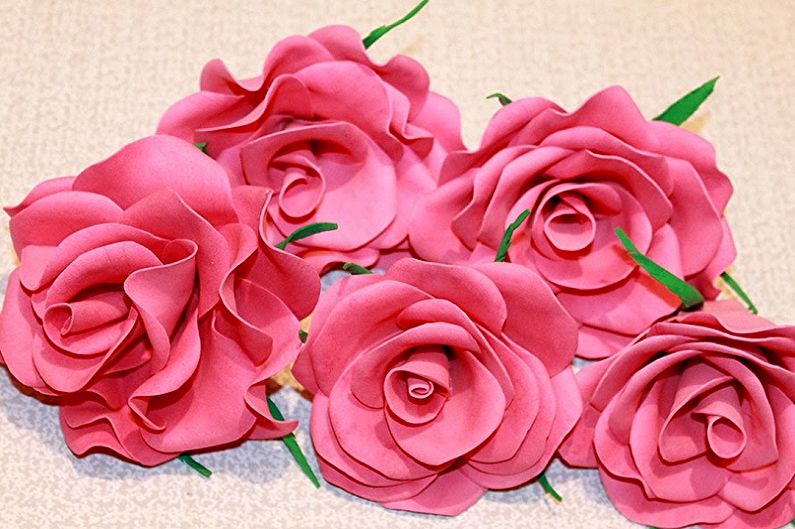
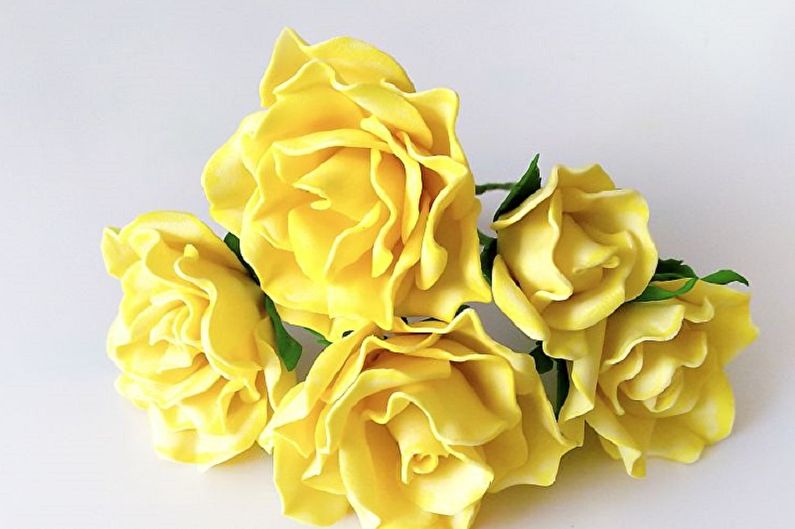
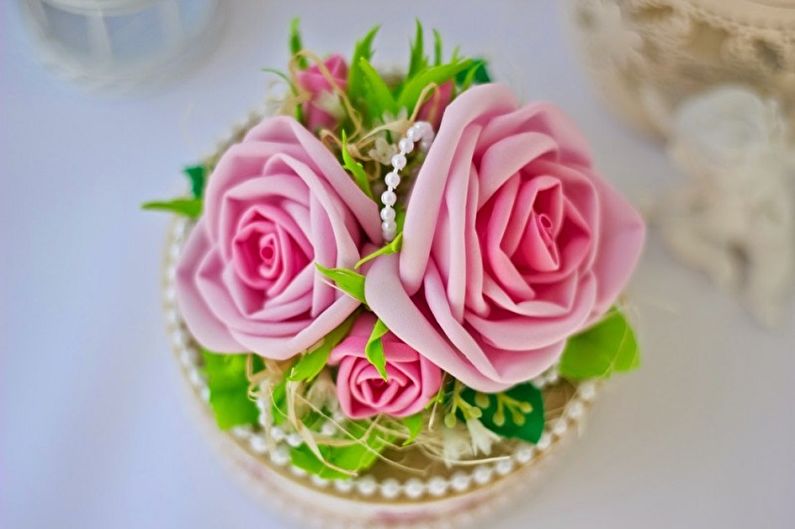
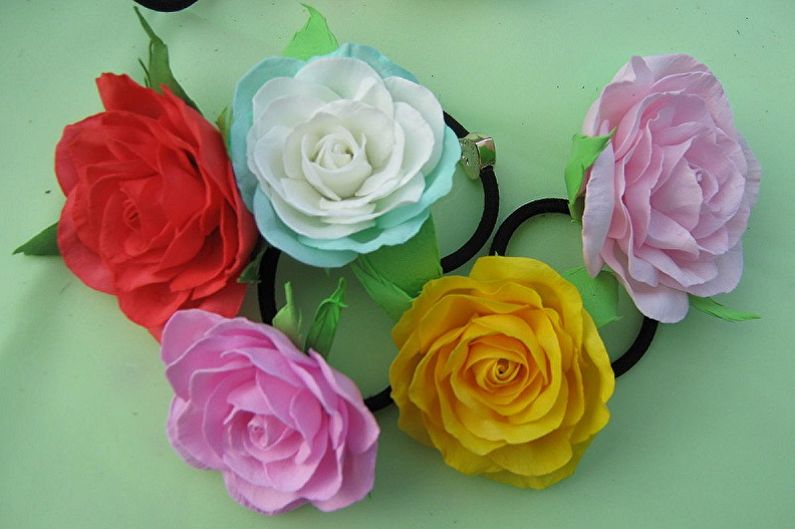

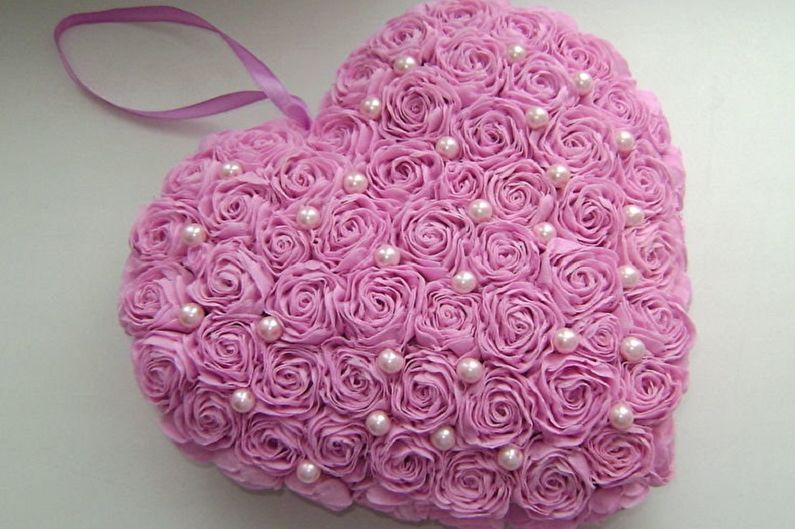
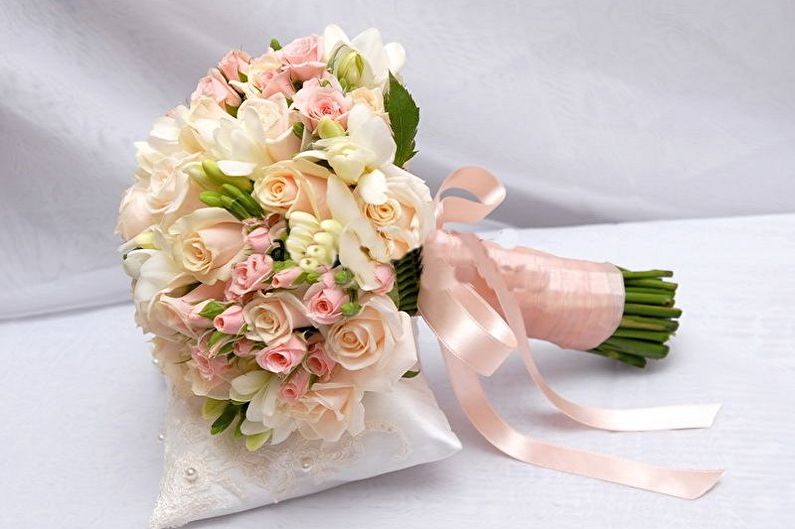
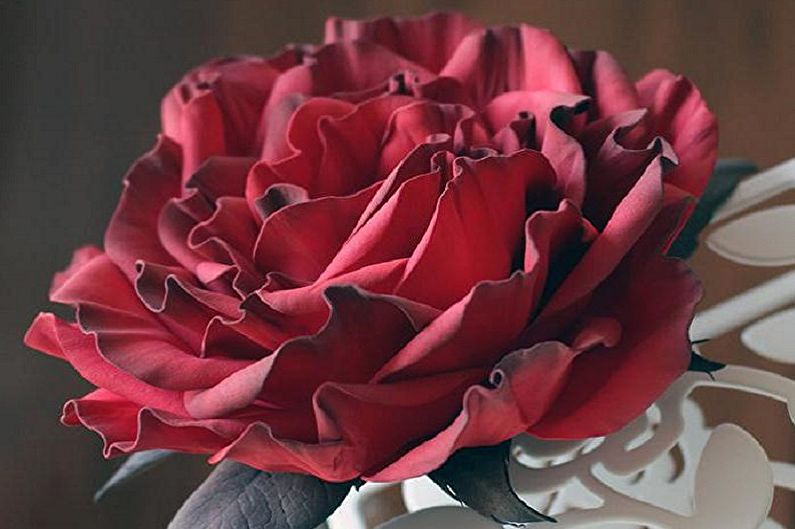
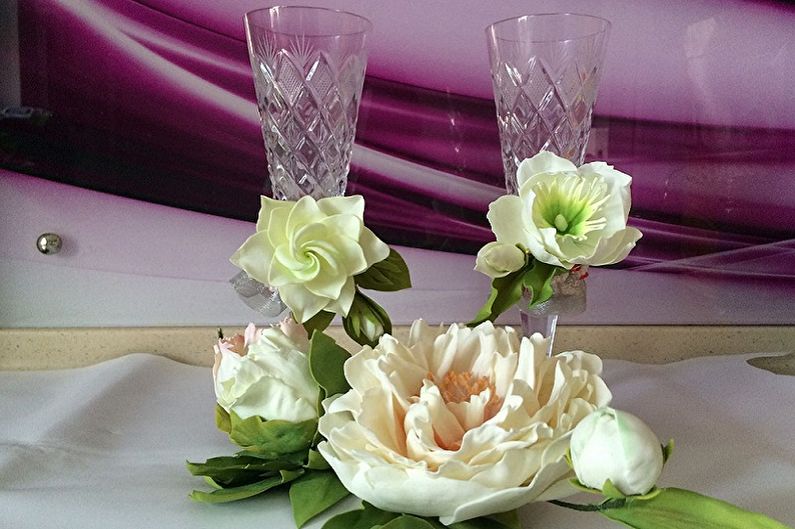
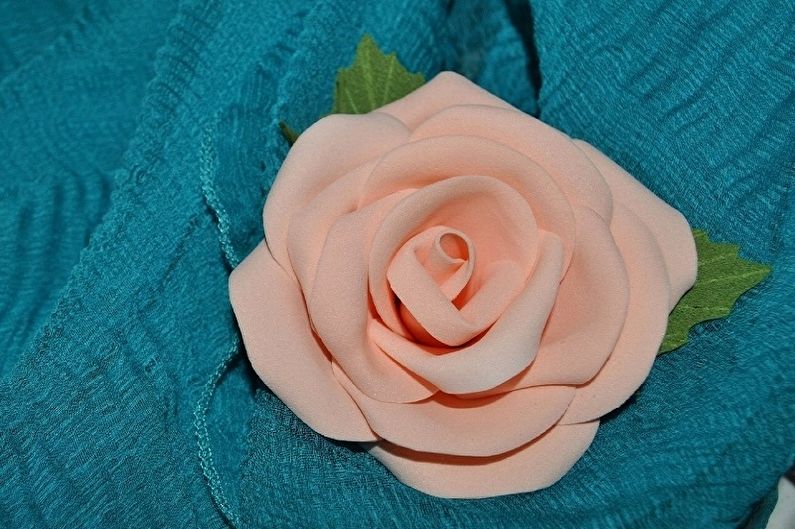
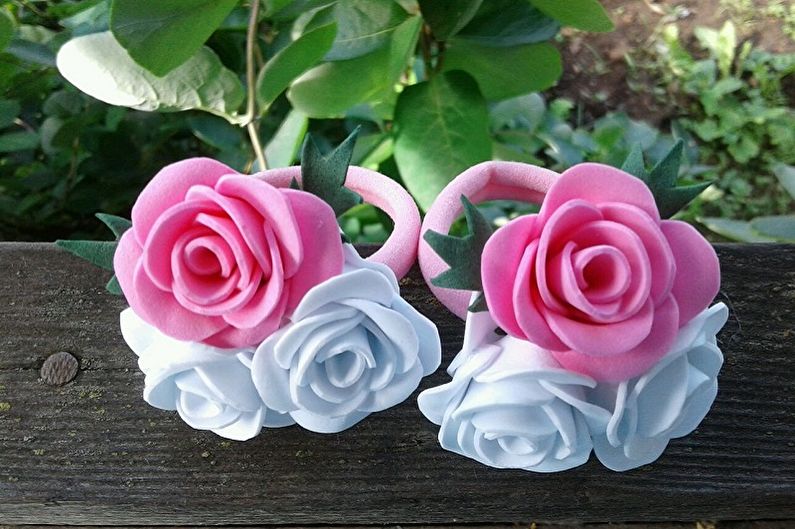
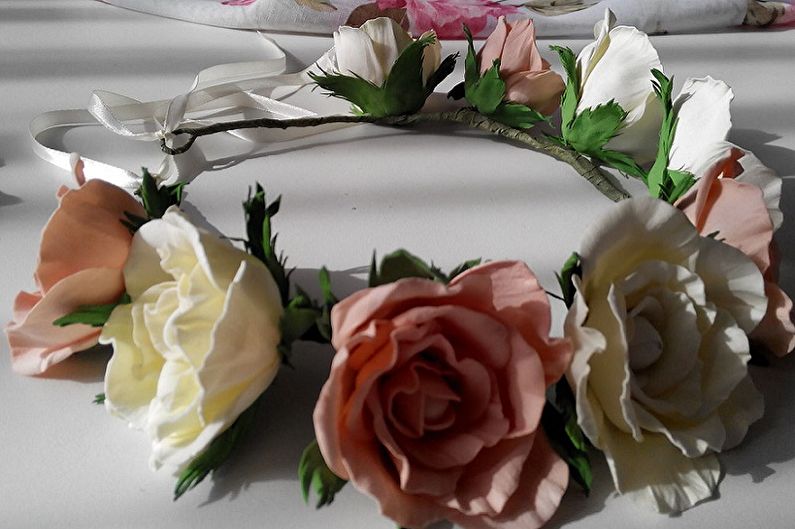
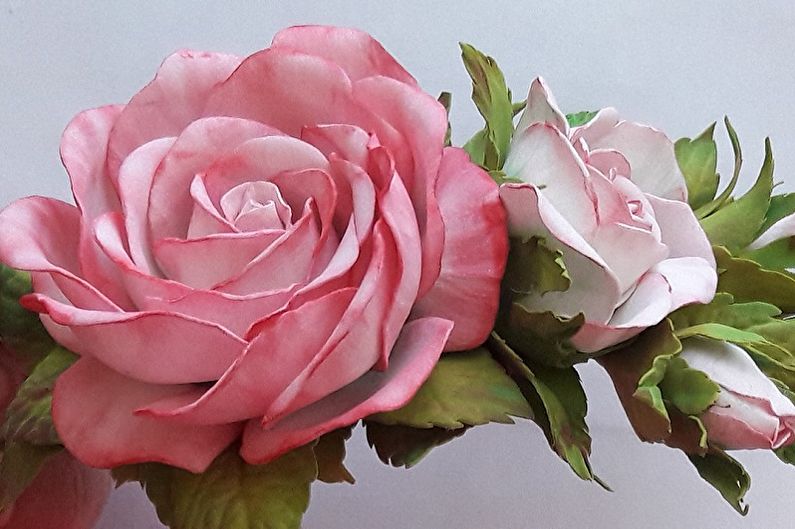
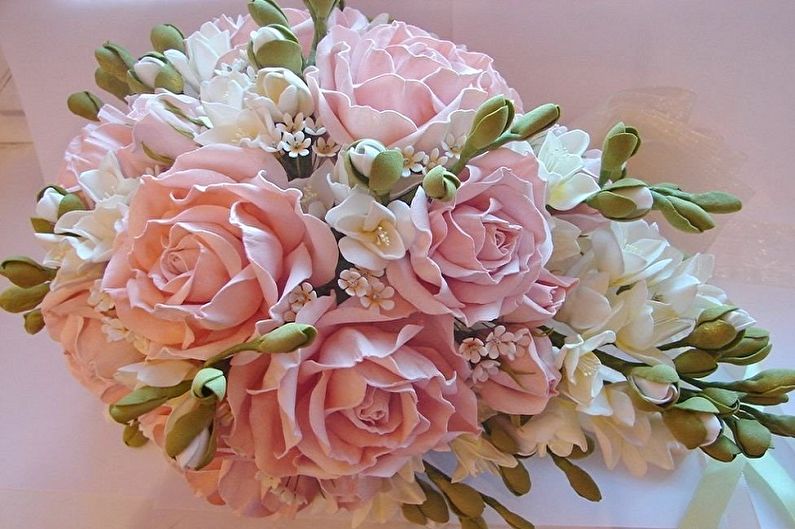
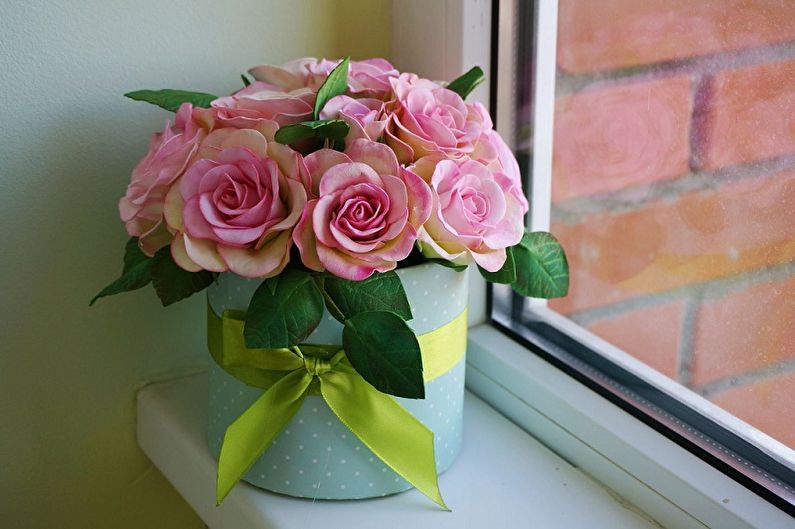

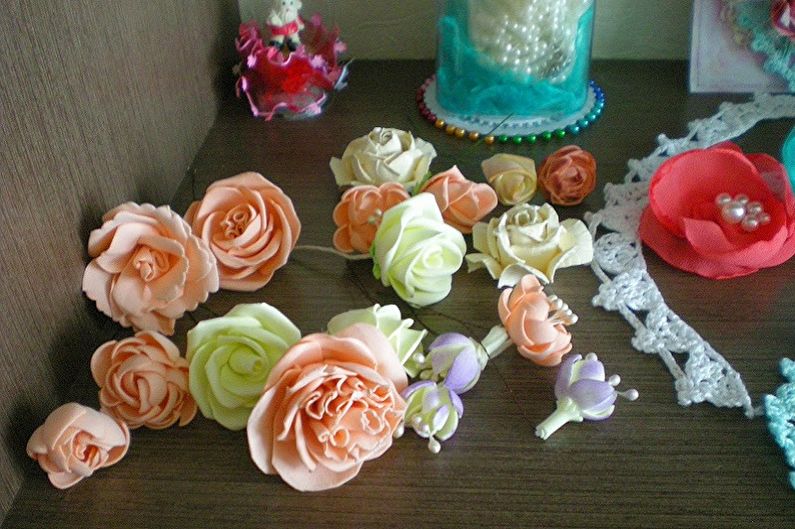
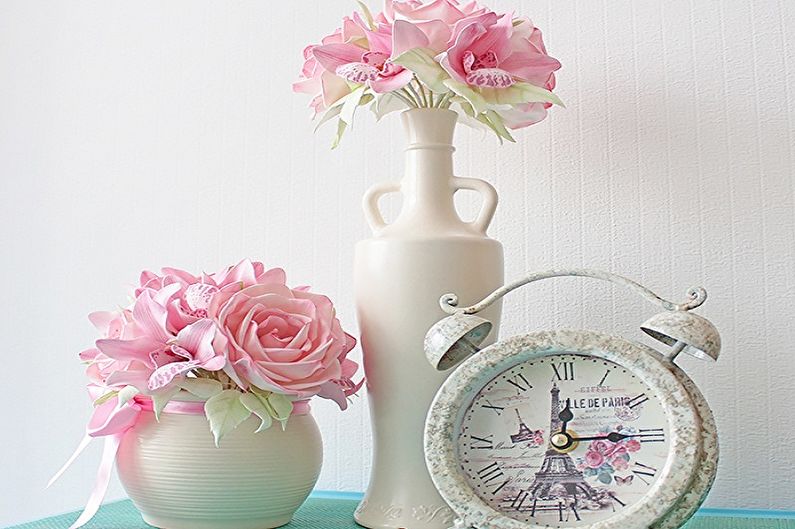
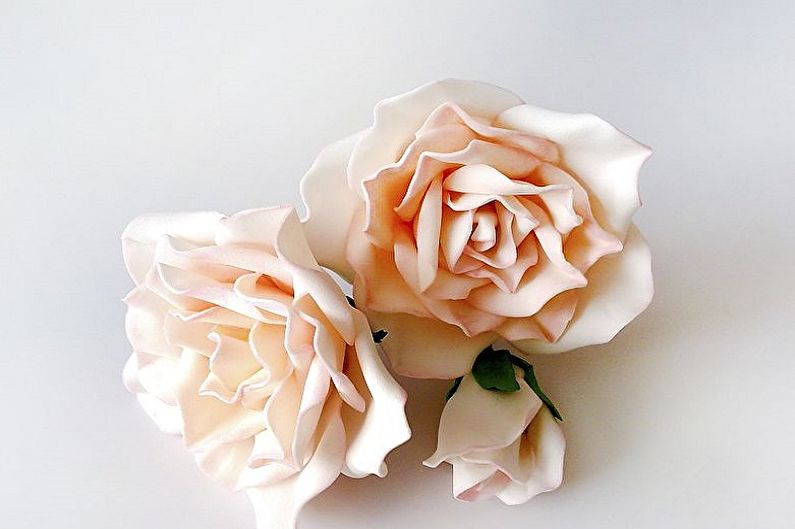
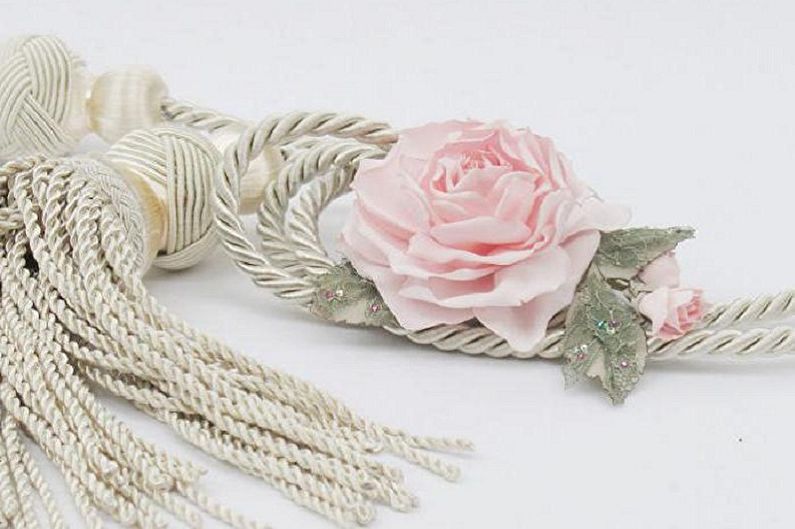






Leave feedback about this